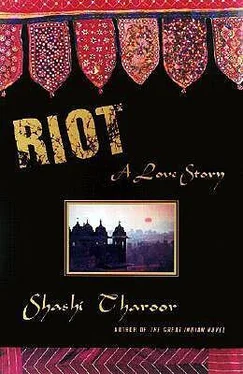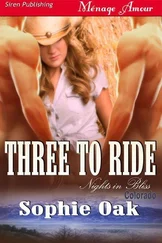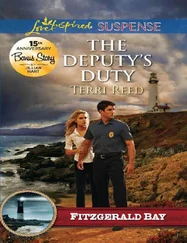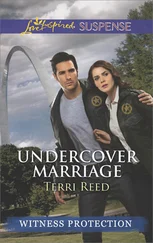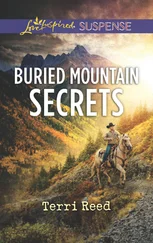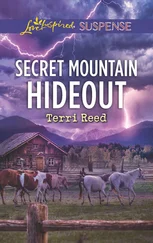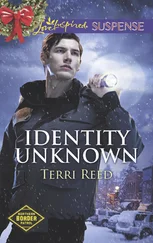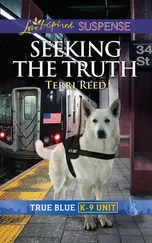“I’d like to write a novel,” I tell her, “that doesn’t read like a novel. Novels are too easy — they tell a story, in a linear narrative, from start to finish. They’ve done that for decades. Centuries, perhaps. I’d do it differently.”
She raises herself on an elbow. “You mean, write an epic?”
“No,” I reply shortly, “someone’s done that already. I’ve read about this chap who’s just reinvented the Mahabharata as a twentieth-century story — epic style, oral tradition, narrative digressions, the lot. No, what I mean is, why can’t I write a novel that reads like — like an encyclopedia?”
“An encyclopedia?” She sounds dubious.
“Well, a short one. What I mean is, something in which you can turn to any page and read. You pick up chapter 23, and you get one thread of the plot. Then you go forwards to chapter 37, or backwards to 16, and you get another thread. And they’re all interconnected, but you see the interconnections differently depending on the order in which you read them. It’s like each bit of reading adds to the sum total of the reader’s knowledge, just like an encyclopedia. But to each new bit of reading he brings the knowledge he’s acquired up to that point — so that each chapter means more, or less, depending on how much he’s learned already.”
“What if she,” Priscilla asks in pointed feminism, “begins at the end?”
“It won’t matter,” I respond excitedly. “The beginning foretells the end. Down with the omniscient narrator! It’s time for the omniscient reader. Let the reader construct her own novel each time she reads it.”
Priscilla bites her lip, as she always does before saying something she’s afraid I won’t like. “I don’t know if this can work,” she says slowly.
“Maybe not,” I reply with cheerful defiance. “But you know what Wilde said about form being more important than content. But of course I’d have all the classic elements of the novel in it. You know, the ancient Sanskrit text on drama, the Natya Shastra, prescribes the nine essential emotional elements that must go into any work of entertainment: love, hate, joy, sorrow, pity, disgust, courage, pride and compassion. They’d all be there. Every single one of the nine tenets of the sages would be included. But why bother to do it conventionally? Can’t you write a novel about, say, religion without describing a single temple or mosque? Why must you burden your readers with the chants of the priests, the orations of the mullahs, the oppressive air of devotion? Let your readers bring themselves to the book they’re reading! Let them bring to the page their own memories of love and hate, their own feelings of joy and sorrow, their own reactions of disgust and pity, their own stirrings of courage and pride and compassion. And if they do that, why should form matter? Let the form of the novel change with each reading, and let the content change too.”
“But how will any reader understand the truth?”
“The truth! The singular thing about truth, my dear, is that you can only speak of it in the plural. Doesn’t your understanding of the truth depend on how you approach it? On how much you know?”
She bites her lip. “Either something is true, or it’s not,” she says at last.
“Not so, my darling,” I declare. “Truth is elusive, subtle, manysided. You know, Priscilla, there’s an old Hindu story about Truth. It seems a brash young warrior sought the hand of a beautiful princess. Her father, the king, thought he was a bit too cocksure and callow. He decreed that the warrior could only marry the princess after he had found Truth. So the warrior set out into the world on a quest for Truth. He went to temples and monasteries, to mountaintops where sages meditated, to remote forests where ascetics scourged themselves, but nowhere could he find Truth. Despairing one day and seeking shelter from a thunderstorm, he took refuge in a musty cave. There was an old crone there, a hag with matted hair and warts on her face, the skin hanging loose from her bony limbs, her teeth yellow and rotting, her breath malodorous. But as he spoke to her, with each question she answered, he realized he had come to the end of his journey: she was Truth. They spoke all night, and when the storm cleared, the warrior told her he had fulfilled his quest. ‘Now that I have found Truth,’ he said, ‘what shall I tell them at the palace about you?’ The wizened old creature smiled. ‘Tell them,’ she said, ‘tell them that I am young and beautiful.’ ”
from Priscilla’s scrapbook
June 22, 1989
He gave me another poem today. “You know so little about me,” he said. “This is something about my high school years, in Calcutta, the building where my parents lived. It’s a bit all over the place, but then so was I at that time.”
Another self-conscious one-liner. The poem must mean a lot to him.
Minto Park, Calcutta, 1969–71
The road bends still in my outstretched mind
into the narrow lane bounded by grey battlements
looming castle-like above the ground,
disguising their true function
as “servants’ quarters,” to which
cooks and houseboys would retire
after the last drink was drunk, the last dish washed.
Behind the battlements stood my building — one of two, both grey
and stately — set on manicured asphalt,
with the luxury of a garden beneath, where frangipani and bougainvillea wafted scents into the air
like the shuttlecocks of the badminton players
next door, launched with the confidence that sent cricket balls
blazing from adolescent bats through the wire fence
into another exclusive address, the Bhowanipore Cemetery.
I would search for the balls there, amongst weed-littered graves,
stumbling across a crumbling tombstone to a little English boy
taken away by malaria, aged nine, a hundred years ago;
or hear the jackals cry at night, their howls a faint echo
of the processions down the road from the maidan,
spewing fear and political anger into the sultry air.
We kept them out, behind the fence, outside the battlements.
When power cuts came (“load-shedding” the favored euphemism)
to the rest of the smoke-numbed city, we basked in an
oasis of privilege, our electricity connected to the
Alipore Jail, the Shambhu Nath Pandit Hospital, the lunatic asylum,
all too dangerous to be plunged into darkness. Hope like a lamp
glimmered on our desks. Luck (and good connections)
lit our way into the future.
At the corner of D. L. Khan Road sat the Victoria Memorial,
her marble skirt billowing with complacent majesty,
as potbellied boxwallahs took their constitutionals
in her shade. Young wrestlers performed their morning asanas
on the lawns, their contortions a widow’s legacy. Traffic belched its way
across Lower Circular Road. The world muddled through.
In my building, the Asian Paints manager, cuckolded by his bachelor neighbor,
traveled often, leaving his gangling cricket-mad son to dream
of emigration to Australia. The bosomy nymphet four floors up
kissed me wetly on the lips one night, then took up with a boy
years older, a commerce student. They are now married.
Just above us was the executive who resembled a Bollywood star.
My mother’s friends swooned if they passed him near the lift.
High up, kind Mr. Luthra, white-haired and gentle, went higher still
one night, his last words to his wife “I don’t want to die.”
He always haunts the building in my mind, fighting to live.
Down the street, the muezzin wails, calling the Muslim faithful
to prayer. They must jostle past the bell-jingling Hindus
Читать дальше
